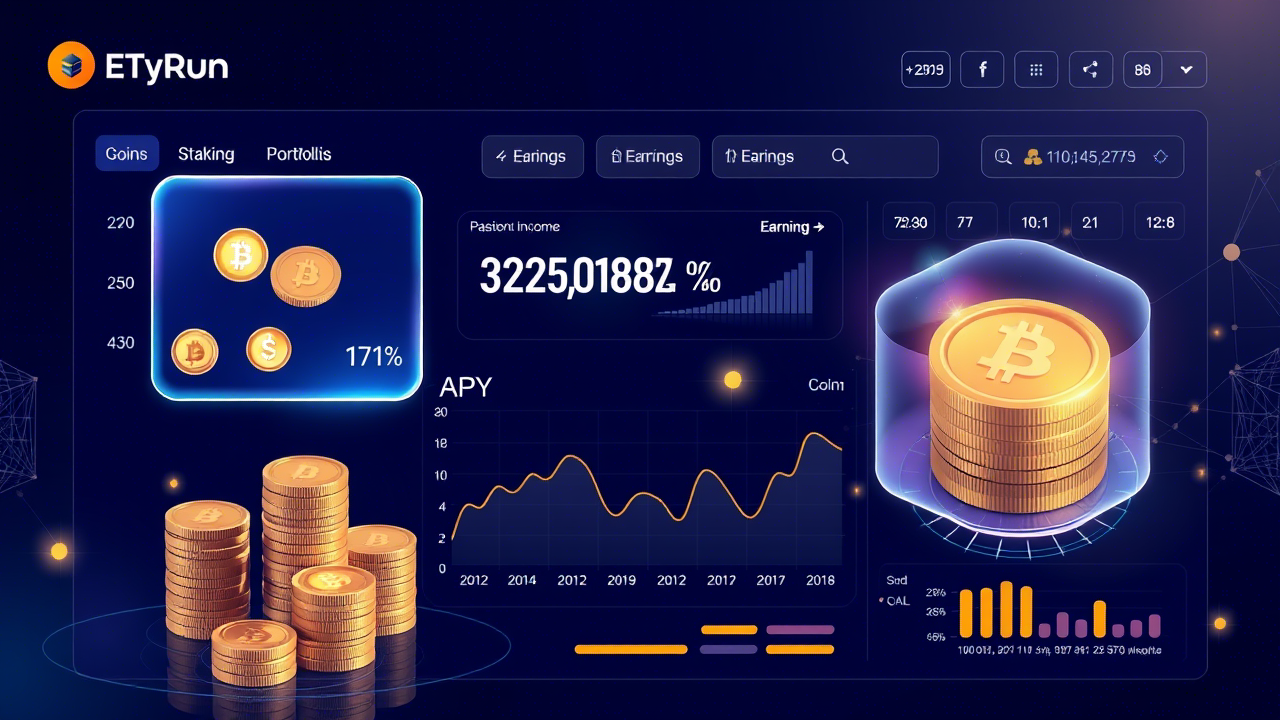Cryptocurrency has emerged as a popular investment option in India, with over 103 million crypto holders accounting for 7.23% of the country’s population. As digital assets gain traction among tech-savvy Indians, the need for secure storage solutions becomes paramount. A crypto wallet is essential for anyone looking to venture into the cryptocurrency market, serving as the digital equivalent of a physical wallet for your virtual assets. Just as you need a financial planner for traditional investments, understanding crypto wallets is crucial for digital asset management.
Unlike traditional wallets that store physical currency, crypto wallets secure the private keys needed to access and manage your digital assets on the blockchain. Whether you’re a beginner exploring Bitcoin or an experienced investor diversifying your crypto portfolio, understanding how crypto wallets work is crucial for protecting your investments.
What is a Crypto Wallet?
A crypto wallet refers to a digitally managed tool or physical medium that holds private and public keys for implementing cryptocurrency transactions. It doesn’t actually store your cryptocurrencies – instead, it stores the cryptographic keys that prove your ownership and allow you to interact with various blockchain networks.
Crypto wallets come in different versions, ranging from hardware devices to mobile applications. Modern cryptocurrency wallets have made blockchain technology accessible to everyone by simplifying the process of sending, receiving, and managing digital assets like Bitcoin and Ethereum.
The private keys stored in your wallet are essentially passwords that enable you to access your cryptocurrencies conveniently and securely. Without these keys, you cannot prove ownership or conduct transactions with your digital assets, making your wallet the most critical component of your crypto investment journey.
Types of Crypto Wallet
Crypto wallets are broadly classified into two main categories: hot wallets and cold wallets. Each type offers different levels of security, convenience, and functionality to meet various user needs.
Hot Wallets
Hot wallets are connected to the internet and are designed for frequent access and transactions. They’re often available as a standalone product or as a feature offered by a crypto exchange. While hot wallets provide convenience for day-to-day transactions, they are more vulnerable to security breaches due to their online nature.
Web Wallets
Web wallets are accessible through web browsers without requiring any software downloads. They offer the flexibility to access your crypto assets from any location with internet connectivity. However, with web wallets, the website typically owns the keys to your crypto assets, which introduces an element of trust in the service provider.
Popular web wallets in India include:
- Coinbase Wallet Web3
- Binance Web Wallet
- WazirX Web Wallet
Desktop Wallets
Desktop wallets require downloading a specific application on your computer system. This application generates a data file for storing your keys, which you can access with a strong password. While desktop wallets give you ownership of your keys, they are vulnerable to physical damage or virus attacks on your computer.
Some reliable desktop wallets available to Indian users include:
- Exodus
- Electrum
- Atomic Wallet
Mobile Wallets
Mobile wallets function similarly to desktop wallets but are installed on smartphones. They offer greater flexibility than desktop wallets, allowing you to manage your crypto on the go. Mobile wallets are particularly popular in India due to the country’s high smartphone penetration rate.
Leading mobile wallet options in India include:
- Coinbase Wallet
- Binance App
- MetaMask Mobile
- WazirX Mobile App
- Backpack Wallet
Cold Wallets
Cold wallets store your private keys in an offline environment, significantly reducing the risk of online hacking attempts. They function as secure vaults for your cryptocurrency and are recommended for long-term storage of substantial crypto holdings.
Hardware Wallets
Hardware wallets store keys inside a physical device similar to a USB drive. These devices can be connected to a computer when needed but keep your keys offline when not in use. Hardware wallets maintain data integrity even during power outages, making them one of the most secure options for crypto storage.
Top hardware wallets available in India include:
- Ledger Nano S Plus (₹11,000 – ₹12,000)
- Trezor Model T (₹10,000 – ₹11,000)
- Trezor Model One (₹5,500 – ₹6,000)
- SafePal S1 (₹4,000 – ₹4,500)
- Cypherock X1 (₹16,000 – ₹17,000)
Paper Wallets
Paper wallets involve writing your keys on physical paper or documents and storing them securely. Though this approach stores your keys entirely offline, it comes with the risk of being lost or physically damaged. If you lose the document containing your keys, you lose access to all associated crypto assets. Paper wallet transactions can also be slow and inconvenient to manage.
How Do Crypto Wallet Work?
Understanding the mechanics of crypto wallets requires familiarity with the concept of public and private keys, which form the foundation of blockchain security.
Public and Private Keys
A crypto wallet creates two cryptographic keys: one public and one private. The public key works like a bank account number—you can share it to receive funds. The private key, however, is like your PIN or password and must be kept secret.
When someone transfers crypto to you, they’re sending it to your wallet’s public address, which is based on your public key. To spend or transfer these funds, you must use your private key to create a digital signature that verifies you are the rightful owner of the assets.
In cryptography, a key is a coded string of characters. You can access your crypto holdings only by unlocking the wallet with the correct key. This cryptographic system ensures that only the person with the private key can access and transfer the associated digital assets.
Blockchain Integration
Crypto wallets don’t hold your actual coins—they simply give you access to assets stored on the blockchain. Your wallet simply stores the keys that prove your ownership and allow you to interact with the blockchain network.
When you make a transaction, your wallet uses your private key to create a digital signature, which is then sent to the blockchain for verification. Once verified by network participants (miners or validators), the transaction is recorded on the blockchain, and the ownership of the assets is transferred.
Security Features of Crypto Wallet
Security is paramount in the crypto space, and different wallets offer various security features to protect your digital assets. Just as you would take precautions with credit card security, protecting your crypto wallet requires vigilance and proper security measures.
Two-Factor Authentication
Many hot wallets use two-factor authentication (2FA) to add an extra layer of security. This requires you to provide two forms of identification before accessing your wallet – typically something you know (password) and something you have (like a mobile device for receiving authentication codes).
Backup and Recovery Options
Most wallets provide backup options in the form of seed phrases or recovery keys. A seed phrase is a series of words (usually 12 or 24) that can be used to restore access to your wallet if your device is lost, stolen, or damaged.
It’s essential to keep your seed phrase in a safe place—ideally offline and separate from your main device. Some users write their seed phrases on paper and store them in safety deposit boxes, while others use metal plates that are resistant to fire and water damage.
Multi-Signature Technology
Some advanced wallets offer multi-signature (multisig) functionality, which requires multiple private keys to authorize a transaction. This is similar to requiring multiple signatures on a bank check and provides an extra layer of security for high-value holdings.
Popular Crypto Wallet in India
The Indian crypto market offers various wallet options to suit different needs and preferences. Below is a breakdown of some of the most widely used options:
Coinbase Wallet
Coinbase Wallet is a self-custody wallet that gives users complete control over their crypto and private keys. It supports a wide range of assets, including Bitcoin, Ethereum, and various ERC-20 tokens. The wallet allows users to interact with decentralized applications (DApps) and participate in DeFi activities.
Pros:
- User-friendly interface suitable for beginners
- Supports thousands of digital assets
- Built-in DApp browser
- Available as both mobile app and browser extension
Cons:
- Since it’s a hot wallet, it’s more exposed to online risks.
- Customer support can be slow during high-volume periods
Binance Wallet
The Binance Web3 Wallet, built to work seamlessly with the Binance app, caters to users focused on decentralized finance (DeFi). It provides strong security measures along with round-the-clock customer assistance.
Pros:
- Seamless integration with Binance exchange
- Advanced security features
- Supports a wide range of cryptocurrencies
- Excellent customer support
Cons:
- Complex interface may intimidate beginners
- Requires Binance account for full functionality
WazirX
WazirX is one of India’s leading cryptocurrency exchanges and offers an integrated wallet solution. It supports over 250 different digital assets, including Bitcoin, Ethereum, and Solana, as well as various altcoins and tokens.
Pros:
- Designed specifically for Indian users
- Supports INR deposits and withdrawals
- Enhanced security with multi-signature technology
- User-friendly interface
Cons:
- Has experienced security incidents in the past
- Limited customer support channels
MetaMask
MetaMask is primarily designed for Ethereum-based assets and is widely used for interacting with decentralized applications. It can be accessed through both a browser extension and a mobile application.
Pros:
- Excellent for Ethereum ecosystem
- Supports ERC-20, ERC-721 (NFTs), and other Ethereum-based tokens
- Customizable gas fees
- Hardware wallet integration
Cons:
- Limited to Ethereum and compatible networks
- Not ideal for Bitcoin and other non-Ethereum cryptocurrencies
Ledger Nano S Plus
Ledger Nano S Plus is a hardware wallet that offers offline storage for over 5,500 cryptocurrencies. It is regarded as one of the safest choices for storing cryptocurrency over the long term.
Pros:
- Offline storage provides maximum security
- Supports a vast array of cryptocurrencies
- Integrates with various software wallets
- Resistant to physical damage
Cons:
- Costs around ₹11,000-₹12,000
- Less convenient for frequent transactions
- Requires physical access to the device
How to Choose the Right Crypto Wallet
Choosing the right wallet hinges on your individual requirements, investment approach, and security priorities. Here are some key factors to consider:
Security Considerations
If security is your top priority, a hardware wallet like Ledger or Trezor is your best option. These devices store your private keys offline, greatly minimizing the chances of hacking. For smaller amounts that you need to access frequently, a reputable hot wallet with strong security features might be sufficient.
Ease of Use
For beginners, user-friendly interfaces are crucial. Wallets like Coinbase and WazirX offer intuitive designs that make it easy to manage your crypto assets. More advanced users might prefer wallets with additional features and customization options.
Supported Cryptocurrencies
Ensure the wallet supports the specific cryptocurrencies you plan to invest in. Some wallets are designed for particular blockchains (like MetaMask for Ethereum), while others support a broader range of digital assets.
Compatibility with Your Devices
Consider whether the wallet is compatible with your primary devices. Mobile wallets are ideal for smartphone users, while desktop wallets might be preferred by those who mainly use computers. Hardware wallets typically connect to computers via USB but can also work with mobile devices through adapters.
Setting Up Your First Crypto Wallet
Getting started with a crypto wallet involves a few essential steps to ensure security and functionality. Furthermore, proper setup is as important as choosing the right investment strategy for your financial goals.
Step-by-Step Process
- Select a wallet type: Choose between hot and cold wallets according to your requirements.
- Download or buy: For software wallets, obtain them from official websites or trusted app stores. For hardware wallets, purchase from authorized retailers to avoid counterfeit products.
- Set up a new wallet: Follow the provided steps to create your wallet.
- Secure your backup: Record your seed phrase and keep it safely offline.
- Use strong passwords: Choose unique and complex passwords to enhance security.
- Enable two-factor authentication: If available, activate 2FA for an extra layer of protection.
- Test with small amounts: Before transferring significant funds, test the wallet with small amounts to ensure everything works correctly.
Common Mistakes to Avoid
Many new crypto users make avoidable mistakes that can lead to significant losses. Therefore, it’s essential to be aware of these common pitfalls:
- Forgetting to backup: Always backup your seed phrase immediately after creating a wallet.
- Sharing private keys: Never share your private keys or seed phrase with anyone.
- Using unofficial sources: Download wallet applications only from official websites or app stores.
- Ignoring security updates: Keep your wallet software updated to benefit from the latest security patches.
- Storing large amounts in hot wallets: Use cold storage for significant holdings and hot wallets only for amounts you need to access frequently.
Also Read | Understanding Crypto Bubble: Are We in One Right Now?
Legal Aspects of Crypto Wallet in India
The regulatory landscape for cryptocurrencies in India continues to evolve, impacting how crypto wallets are used and managed. Similar to how insurance regulations protect consumers, emerging crypto regulations aim to safeguard investors while enabling innovation.
Regulatory Framework
India has implemented specific tax regulations for cryptocurrencies, including a 30% tax on crypto income and a 1% Tax Deducted at Source (TDS) on crypto transactions. While cryptocurrencies are not illegal in India, they are not recognized as legal tender either.
The Reserve Bank of India (RBI) has expressed concerns about cryptocurrencies but has not banned their use. The government is working on comprehensive cryptocurrency legislation, which may introduce additional regulations for crypto wallets and exchanges.
Tax Implications
Crypto wallet users in India must be aware of the tax obligations associated with cryptocurrency transactions:
- Income from cryptocurrency trading is taxed at 30%
- A 1% TDS applies to crypto transactions above certain thresholds
- losses from cryptocurrency transactions cannot be offset against gains from other cryptocurrencies or any other income source
- no deductions are allowed except for the cost of acquisition of the cryptocurrency
Under India’s current tax regulations, Expenses such as transaction fees, wallet maintenance, or electricity costs for mining are not deductible. Therefore, it’s crucial to maintain detailed records of all crypto transactions for accurate tax reporting. Consulting with a tax professional familiar with cryptocurrency regulations is advisable to ensure compliance with Indian tax laws.
FAQs
What is the safest type of crypto wallet?
Hardware wallets are generally considered the safest option for storing cryptocurrencies as they keep private keys offline, protecting them from online threats. Commonly preferred in India are the Ledger Nano S Plus and the Trezor Model T.
Can I use multiple crypto wallet?
Indeed, numerous crypto investors utilize several wallets for various needs—such as a hardware wallet for secure long-term storage and a mobile wallet for everyday transactions. However, using multiple wallets for the same crypto increases security risks due to more potential points of vulnerability.
Are crypto wallets free to use?
Most software wallets (web, desktop, and mobile) are free to download and use. Hardware wallets require a one-time purchase, with prices ranging from ₹4,000 to ₹17,000 depending on the model and features.
What happens if I lose my crypto wallet?
If you lose access to your wallet but have your seed phrase (recovery phrase), you can restore your wallet and regain access to your funds. However, if you lose both your wallet and seed phrase, your cryptocurrencies will likely be permanently inaccessible.
Is it necessary to have a different wallet for every cryptocurrency?
Not necessarily. Many wallets support multiple cryptocurrencies, allowing you to manage various digital assets from a single interface. However, some cryptocurrencies may require specific wallet types, so it’s important to verify compatibility before investing.
How do I transfer cryptocurrency to my wallet?
To accept cryptocurrency, provide the sender with your wallet’s public address. For sending cryptocurrency, you’ll need the recipient’s public address and access to your private keys to authorize the transaction.
Also Read | Top Crypto Apps for Secure Trading and Portfolio Management
Final Thoughts
Choosing the right crypto wallet is a crucial decision for anyone investing in digital assets in India. The perfect wallet offers a mix of security, ease of use, and features tailored to your individual requirements. Hardware wallets offer maximum security for long-term holdings, while software wallets provide convenience for regular transactions.
As the cryptocurrency landscape in India continues to evolve, staying informed about regulatory changes and security best practices is essential. Remember that regardless of which wallet you choose, the responsibility for securing your private keys ultimately rests with you.
By understanding the different types of wallets, their security features, and how they integrate with the blockchain, you can make informed decisions to protect your digital investments and navigate the exciting world of cryptocurrencies with confidence.
About the Author
I’m Om Prakash — founder of Paisagyaan.com, a blog focused on making financial knowledge simple, relatable, and useful for everyday Indians. My journey includes over 10 years of navigating the Indian stock market, learning the hard way about investments, debts and real estate.
Read About the Author in detail, who lost 75 lakh rupees during 2009 to 2019 which would be 4.5 crore now in 2025.
But here’s what those losses taught me: Financial knowledge matters — deeply, so you don’t repeat my mistakes. If you’re just starting out or have already faced setbacks, this blog is for you for educational purpose and not advice.












Leave a Reply